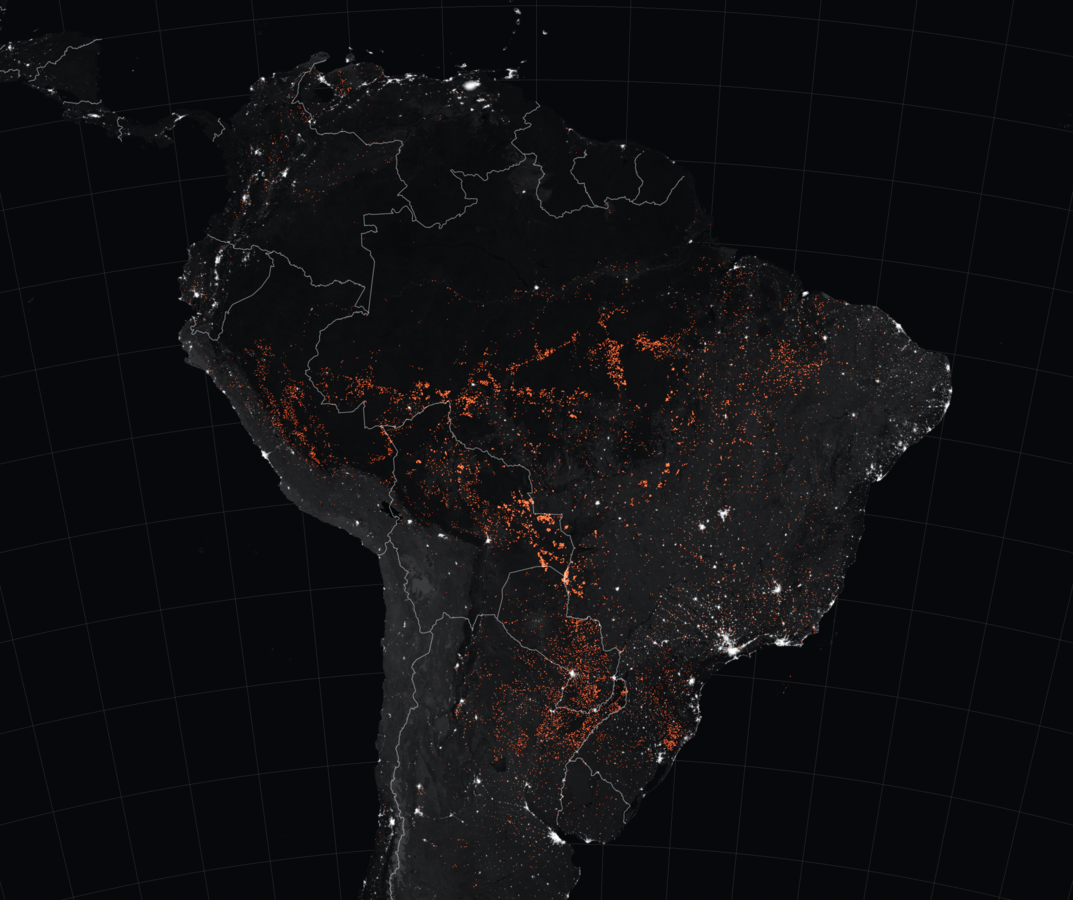This should not come as a surprise, but people have been angry on Twitter lately. This time, the outrage is over the Amazon forest being in flames.
When reports flooded the online world last week that a massive fire had been burning the Amazon forest for half a month, Twitter users were quick to circulate news articles, posts and threads exposing the environmental catastrophe. People were angry that the fire had been covered up for so long, that it was so widespread, that it had been encouraged by far-right Brazilian President Jair Bolsonaro and that the “wrong Amazon was burning.”
Inevitably, derisive tweets soon followed this first wave of posts. There were the usual trolls and climate change deniers in the mix, of course, but most prominent were the cynics who condemned everyone’s actions as futile. How, some argued, were a couple extra tweets going to solve anything? A retweet doesn’t pour water on a blaze, and a tweet doesn’t prevent cattle ranchers from burning trees for grazing land.
Some people initially thought the fire was caused by unusual environmental factors, but cattle farmers, who purposely burned the forest, were really to blame. The beef industry is guilty as well, as it pushed the farmers to destroy forested land.
What’s more troubling is Bolsonaro’s business ties with major beef companies and his pro-deforestation, anti-indigenous rights rhetoric directed at farmers living at the fringes of the Amazon forest. Knowing the whole story in a case like this is crucial, as it helps us distinguish the cause not as strange natural phenomena, but the influence of a dangerous fascist ruler.
The most important effect of tweeting en masse is the pressure it applies on elected officials to do something about an issue their constituents care about. On Monday, Aug. 26th, just a few days after the Twitter outrage reached its peak, G7 leaders pledged to allocate $22 million to fight the Amazon fire. This quick response, which came after several weeks of diplomatic officials turning a blind eye to the blaze, is due to the uproar world leaders felt online. Where a moral compass fails to spur elected officials to action, a threat of low approval ratings usually works.
Unfortunately, as witnessed by the recent news that Brazil has decided not to accept the full $22 million in aid, tweeting alone doesn’t solve issues. This doesn’t mean we should give up all hope and passively absorb news of our imminent destruction, though.
We have to realize change is gradual, and our tiny actions have larger impacts than we realize. One retweet may prompt another person to retweet, or it can bring the issue to the attention of uninformed Twitter users. We never know what ripple effects our actions may have, which is why we should never doubt the importance of our small acts of support.
Cécile Girard is a 19-year-old biology and psychology major from Lake Charles, Louisiana.
This should not come as a surprise, but people have been angry on Twitter lately. This time, the outrage is over the Amazon forest being in flames.
When reports flooded the online world last week that a massive fire had been burning the Amazon forest for half a month, Twitter users were quick to circulate news articles, posts and threads exposing the environmental catastrophe. People were angry that the fire had been covered up for so long, that is was so widespread, that it had been encouraged by far-right Brazilian President Jair Bolsonaro and that the “wrong Amazon was burning.”
if you ask me: the wrong Amazon is burning, the wrong ICE is dissolving, and the wrong class is in power
— Kristian Steffany(@kksteffany) August 21, 2019
Inevitably, derisive tweets soon followed this first wave of posts. There were the usual trolls and climate change deniers in the mix, of course, but most prominent were the cynics who condemned everyone’s actions as futile. How, some argued, were a couple extra tweets going to solve anything? A retweet doesn’t pour water on a blaze, and a tweet doesn’t prevent cattle ranchers from burning trees for grazing land.
Some people initially thought the fire was caused by unusual environmental factors, but cattle farmers, who purposely burned the forest, were really to blame. The beef industry is guilty as well, as it pushed the farmers to destroy forested land.
What’s more troubling is Bolsonaro’s business ties with major beef companies and his pro-deforestation, anti-indigenous rights speeches directed at farmers living at the fringes of the Amazon forest. Knowing the whole story in a case like this is crucial, as it helps us distinguish the cause not as strange natural phenomena, but the influence of a dangerous fascist ruler.
The most important effect of tweeting en masse is the pressure it applies on elected officials to do something about an issue their constituents care about. On Monday, Aug. 26, just a few days after the Twitter outrage reached its peak, G7 leaders pledged to allocate $22 million to fight the Amazon fire. This quick response, which came after several weeks of diplomatic officials turning a blind eye to the blaze, is due to the uproar world leaders felt online. Where a moral compass fails to spur elected officials to action, a threat of low approval ratings usually works.
Unfortunately, as witnessed by the recent news that Brazil has decided not to accept the full $22 million in aid, tweeting alone doesn’t solve issues. This doesn’t mean we should give up all hope and passively absorb news of our imminent destruction, though.
We have to realize change is gradual, and our tiny actions have larger impacts than we realize. One retweet may prompt another person to retweet, or it can bring the issue to the attention of uninformed Twitter users. We never know what ripple effects our actions may have, which is why we should never doubt the importance of our small acts of support.





